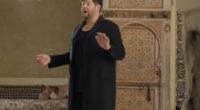There was an Irishman, an Irishman and…well, no-one else, but this isn’t a joke.
Hearts of fans all over the United Kingdom were lifted after another disappointing result in the 2008 Eurovision Song Contest. After years of derision, cynicism and mickey-taking, Sir Terry Wogan, it seemed, had had enough. "I have to decide whether I want to do this again. I’m afraid nobody loves the UK, it just isn’t funny anymore." he said after the end of the broadcast from Serbia. While those that hate the contest love Terry’s irreverent commentary, indeed many tune in just because of it, fans know the truth.
In the United Kingdom, the Eurovision Song Contest has for years been seen as a source of tuneless songs with banal lyrics which don’t reflect current trends. A quick flick through the pages of the contests history will prove otherwise, but why let the truth interfere with a popular misconception?
In the 1960’s and 1970’s, the contest was more respected. Famous acts like Lulu, Cliff Richard and Olivia Newton-John were happy to sing their hearts out for their country. All was well and then Mr Wogan walked into the commentary box, picked up the microphone and it all changed. There is an old adage which says “If you repeat the same lie often enough, people will start to believe it”. The British public started laughing at the contest, they believed his annual rants about political voting and no British act with a career to protect would go near the contest. They were too scared of finishing behind a pregnant woman from Denmark or a pensioner from Luxembourg to allow the greatest honour a nation can bestow upon it’s citizens, that of representing you country, to be given to them. Yes, this changed briefly in the early 1990’s with Michael Ball and Sonia, but since then, the only famous acts to appear in the UK selection have their biographies prefixed by ‘ex’, ‘former’ or ’used to’.
I like to think that Terry’s influence isn’t so great that the British public hang on his every word. However, Andy Abrahams was his choice in ‘Eurovision – Your Decision’. The two ‘experts’ (am I the only one that takes this description with a dose of salt so huge, that my heart screams for mercy?) had eliminated him in favour of Michelle Gayle. For reasons known only to them, the BBC gave Terry a wildcard pick, where he could bring one of the eliminated songs back into the contest. He chose Andy, the British public voted for him and our fate in the 2008 contest was sealed.
So, after hinting at retirement, talk turned to who would replace him. One of the names is Graham Norton, another Irishman. Quite why the BBC would ask someone who is paid to be funny to commentate when, by involving Andrew Lloyd-Webber in next year’s contest, the BBC are showing signs they want the contest to be taken seriously, is beyond me. Only time will tell if he does take up the microphone, but he has recently tried to dampen speculation by saying that no-one has spoken to him about it and Terry will probably carry on anyway.
So if those that sit in the executive offices at the BBC are reading this, then I ask this of you; there are plenty of replacements out there who would focus on the music; Jools Holland for one, maybe Lauren Laverne, even Ken Bruce, who is funny without being disrespectful. So please save us from the same old story, be it read by the same voice or a new one. The British music industry is respected worldwide and deserves better.



















